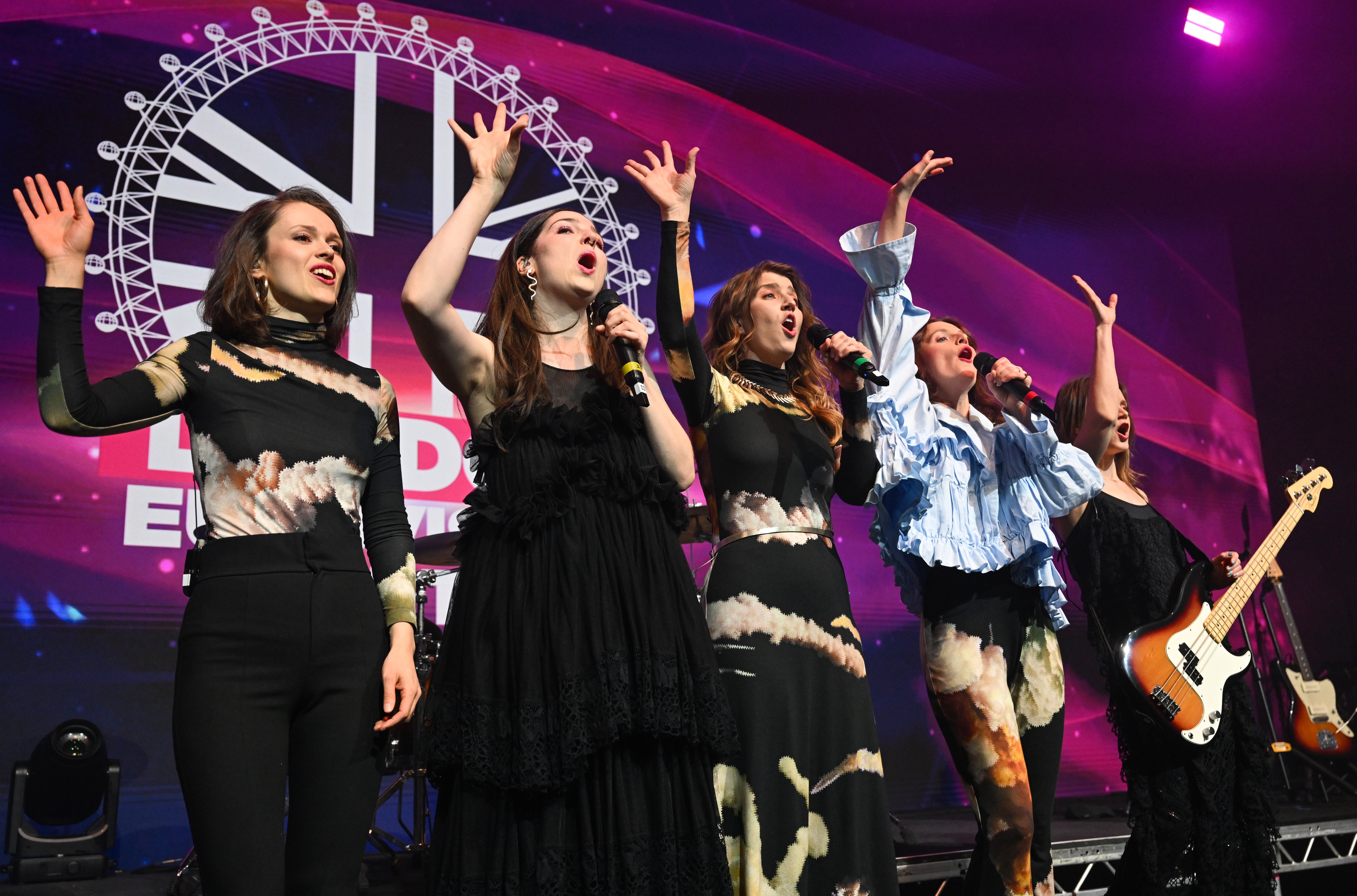Vesna: Who are the all-female folk group representing ‘underdogs’ Czechia at Eurovision?
Folk band Vesna speak about sisterhood and the importance of having a good steam iron backstage
Your support helps us to tell the story
From reproductive rights to climate change to Big Tech, The Independent is on the ground when the story is developing. Whether it's investigating the financials of Elon Musk's pro-Trump PAC or producing our latest documentary, 'The A Word', which shines a light on the American women fighting for reproductive rights, we know how important it is to parse out the facts from the messaging.
At such a critical moment in US history, we need reporters on the ground. Your donation allows us to keep sending journalists to speak to both sides of the story.
The Independent is trusted by Americans across the entire political spectrum. And unlike many other quality news outlets, we choose not to lock Americans out of our reporting and analysis with paywalls. We believe quality journalism should be available to everyone, paid for by those who can afford it.
Your support makes all the difference.Among the acts to take the Eurovision stage in this week’s grand final are the all-female folk band Vesna, who are representing Czechia in this year’s song contest.
With the semi-finals now done and dusted, the 26 countries to compete for the glass microphone trophy in Liverpool tonight (Saturday 13 May) have been confirmed.
You can see the full line-up and running order for this weekend’s glitter-strewn event here.
Inspired by their bond as bandmates and women, Vesna’s song “My Sister’s Crown” is a celebration of sisterhood, female power, and community.
While these values underpin the group’s own sense of family, the lyrics are also intended to resonate more widely and galvanise other marginalised groups who experience violence.
The distinctly feminist approach to the lyrics is consistent with the origins of the band’s founding member.
Singer-songwriter Patricia Kaňok developed a passion for celebrating Slavic culture and femininity during her musical studies at the Jaroslav Ježek college in Prague.
Vesna’s accompanying performance for “My Sister’s Crown” sees the women donning matching pastel pink outfits and floor-grazing braids.

It’s a slick and simple affair compared to some of the more wild acts they are up against, such as Australian prog-rock group Voyager and Germany’s head-bashing metal outfit Lord of the Lost.
With two albums already under their belt, Vesna will be bringing a well-tuned blend of dreamy folk and contemporary pop to the Eurovision stage this weekend.
The Czech Republic may have withdrawn from the competition for 10 years (resuming only in 2015) due to a perceived lack of interest in their country’s performers, but the magnetic presence of Vesna is likely to render this hiatus long forgotten.
This year is also the first time that the country has competed in Eurovision under the name Czechia.
Why is the Czech Republic called Czechia?
In 2016, it was announced that the Czech Republic wants to be known as “Czechia” in order to make it easier for sports teams and companies to use the country’s name on clothing and products.
As reported by the BBC, the country will retain its full name but Czechia will be the official short geographic name, similar to what “France” is to “The French Republic”, which it is referred to in some very formal contexts.
Ahead of this week’s competition, we spoke to Vesna about competing in Liverpool and girl power.

Hi Vesna! Eurovision 2023 is fast upon us – how are you feeling about competing in Liverpool?
In one way, we feel honoured to represent the Czech Republic in such an important event – we are no longer Vesna, but Czechia. People call you by the name of your country, and with that you also feel the weight of responsibility. We feel like we are in a dream, being able to have all these gigs, all the international fans singing our song and meeting talented and brilliant artists. It is all very surreal.
You wrote “My Sister’s Crown” specifically to be performed at Eurovision. Where did the inspiration for the song stem from?
As women, we have a bond with each other that is shared not only through music, but also friendship, which feels like sisterhood to us. With our song, we wanted to support all the people that are experiencing a certain type of pressure or restriction on a personal or social level.
We wanted everyone who listens to the song to feel like they own their crown, and nobody can undermine that. It’s a song calling for all the underdogs to be strong and supported.
What’s an essential item in your Eurovision rider?
Believe it or not, just an in-ear system and steam iron!
Who’s your favourite Eurovision contestant of all time and why?
Ruslana [2004 Ukraine contestant] – her song was a great hit in the Czech Republic while we were growing up, but Manizha [2021 Russia act] is also such a talented artist, and Mäneskin [2021 Italian winners] are a brilliant and successful band. Also Mikolas Josef, who came sixth [in 2018], the best result the Czech Republic has ever got at Eurovision. And so many more!




Join our commenting forum
Join thought-provoking conversations, follow other Independent readers and see their replies
Comments